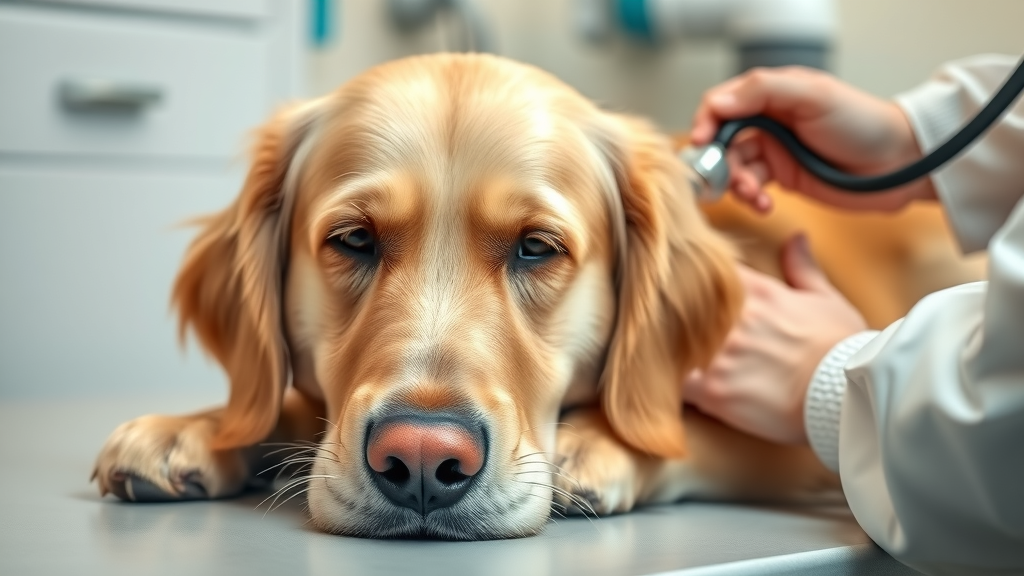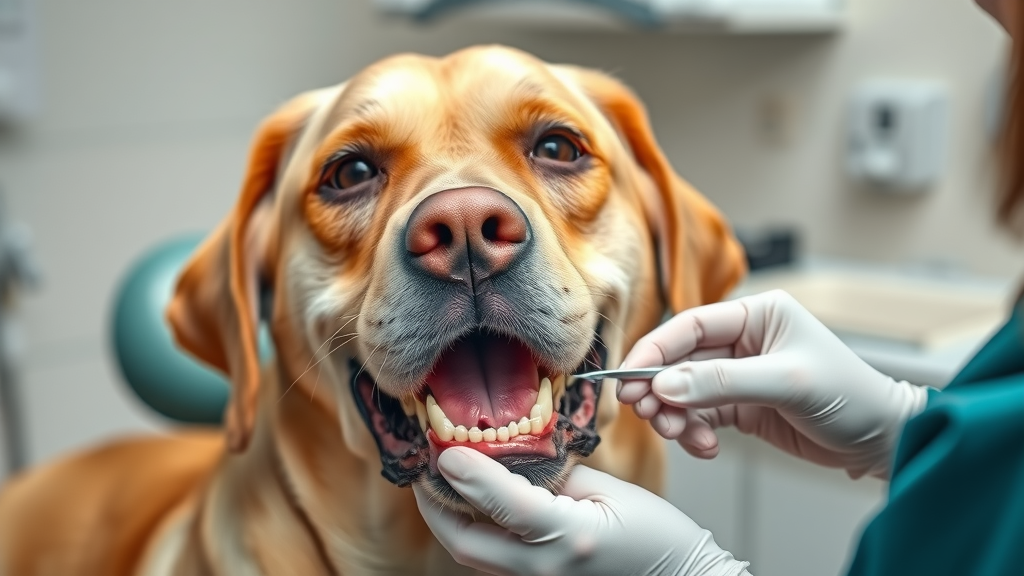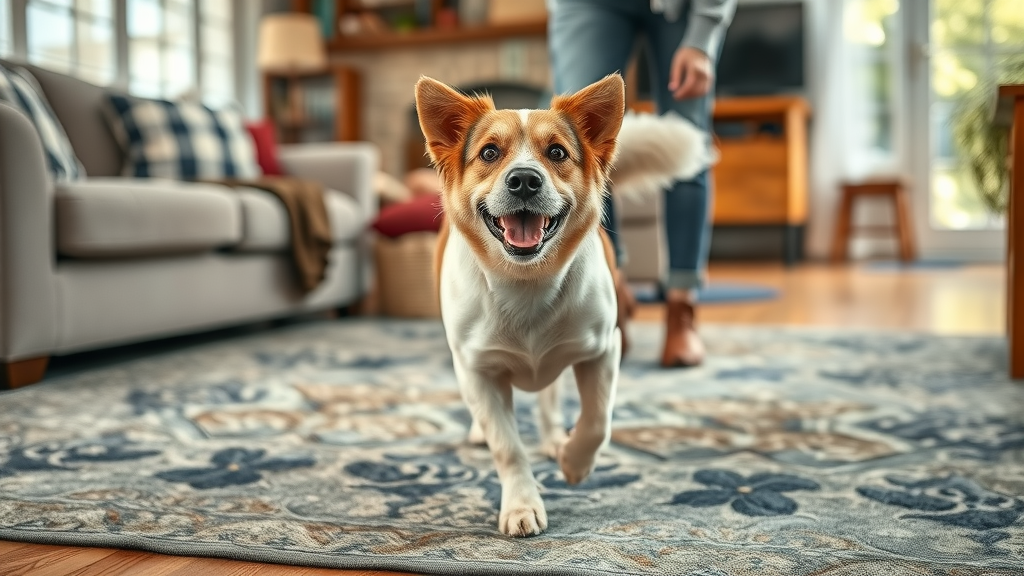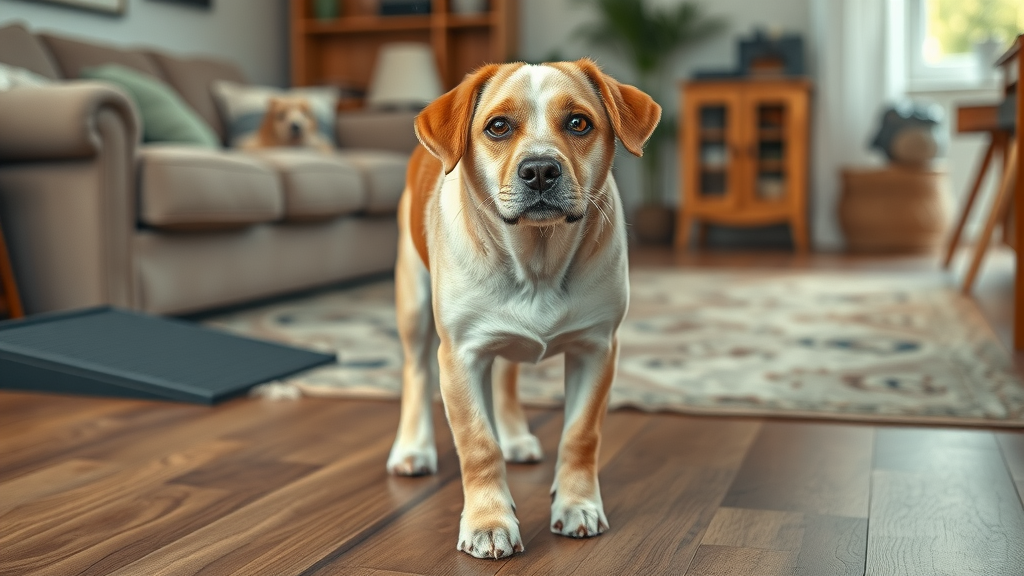Did you know that nearly 80% of senior pets develop at least one chronic health issue as they age? Many of these health problems go unnoticed because the signs are subtle, making them easy for even experienced pet owners to miss. Regular veterinary care for older dogs is more than a routine—it's a lifesaving commitment that can add years to your beloved pet's life and protect their quality of life far into their golden years.
If you think your older dog just needs a little more rest and the occasional treat, it’s time to rethink their care. As dogs age , their healthcare needs change dramatically. Early intervention and specialized pet care can help keep your senior dog healthy and happy . Keep reading to discover vital checks and expert tips every pet owner should know when caring for a senior pet.
Understanding the Importance of Veterinary Care for Older Dogs: Surprising Facts and Lifesaving Insights
- Did you know nearly 80% of senior pets will develop at least one chronic health issue?
- Many older dogs show subtle signs of illness owners often miss.
- Early intervention through regular veterinary care for older dogs can add years to your pet’s life.
As our pets reach their senior years—usually considered seniors around 7–10 years of age for most breeds—they become more susceptible to chronic health issues like arthritis, dental disease, kidney disease, and certain cancers. Surprisingly, these health issues often progress quietly. According to veterinary experts, one of the biggest risks for older pets is that owners overlook subtle symptoms, delaying essential treatment.
Veterinary care for older dogs isn’t just about managing disease—it's about prevention and maximizing well-being. Early detection of health issues can mean the difference between a manageable condition and a crisis. With regular checkups, personalized attention, and open communication with your veterinary team, your senior pet can enjoy many more healthy and happy years by your side.

Key Benefits of Veterinary Care for Older Dogs
- Promotes healthy and happy senior pets
- Early disease detection in senior dogs
- Improved quality of life for older dogs
- Personalized pet care plans for your aging companion
Prioritizing veterinary care for older dogs dramatically improves the quality of life for your senior dog. Regular checkups allow for the early identification of issues such as dental disease, hearing loss, and organ dysfunction—letting your veterinary team implement effective treatments while issues are still manageable. Your pet will feel better, recover faster from illnesses, and avoid painful complications.
Additionally, customizing your senior pet’s care plan—which often includes tailored diets, exercise, and medication management—ensures they remain comfortable and active. More than ever, dogs and cats are living longer thanks to advances in preventive veterinary medicine. Taking proactive steps in senior dog care is the best way to guarantee your companion’s golden years are both healthy and happy.
What Vital Checks Should Veterinary Care for Older Dogs Include?
- Comprehensive physical exams tailored for senior dogs
- Laboratory screenings to monitor organ function in senior pets
- Dental health assessments for older dogs and cats
- Arthritis, mobility, and pain evaluations in older dogs
A one-size-fits-all approach simply isn’t enough for older pets. Senior dog checkups are more robust and targeted than for younger animals. Comprehensive physical exams on older dogs look for nuanced changes in weight, mobility, appetite, and behavior. Your vet will likely recommend laboratory screenings —like blood and urine tests—to monitor kidney, liver, and heart function, which become increasingly important as dogs age.
Dental health assessments are crucial, as dental disease is a common but underrecognized cause of pain and illness in aging dogs. Vets also assess joint flexibility, muscle loss, and signs of arthritis—ensuring any stiffness, lameness, or discomfort is addressed promptly so your pet stays active and pain-free for as long as possible.
| Age Group | Frequency of Checkups | Key Tests (Examples) |
|---|---|---|
| Adult (1-7 yrs) | Annual | Vaccines, basic bloodwork |
| Senior (7-10) | Biannual | Full panel, arthritis screening |
| Geriatric (10+) | Every 3-6 months | Cancer screens, organ function |

Recognizing Common Health Concerns Addressed by Veterinary Care for Older Dogs
Arthritis and Joint Health in Senior Pets
Arthritis and joint problems are among the most common health challenges faced by older dogs. As your pet enters their senior years, you may notice they are slower to rise, hesitant to jump, or less interested in walks. These changes are often due to cartilage wearing down, causing inflammation and discomfort. Regular veterinary assessments can catch early signs of arthritis, making it possible to manage discomfort and improve mobility with supplements, medications, or physical therapy.
Addressing arthritis effectively means more than treating pain; it’s about restoring dignity and independence to your senior pet. Your veterinarian may suggest lifestyle adjustments, gentle exercise, or special dog food formulated for joint support, helping your pet live a more healthy and happy life as they age.
Dental Disease and Oral Care for Older Dogs
Did you know that up to 80% of senior dogs suffer from dental disease ? Bacteria from dental infections can enter the bloodstream, affecting the heart, liver, and kidneys—making dental care a serious health issue, not just a cosmetic one. Signs of dental disease include bad breath, loose teeth, and reluctance to eat.
Veterinary care for older dogs should always include regular dental checkups and professional cleanings as needed. Keeping your senior dog’s mouth healthy adds years to their life and helps prevent the pain and risk associated with untreated oral health issues. Daily teeth brushing and dental treats can supplement professional care for optimal oral health.

Cancer Risks in Senior Dogs and Older Dogs
Cancer is a leading cause of illness and death in older dogs. Just as in humans, cancer risk increases with age and detection in the early stages dramatically improves treatment outcomes. Lumps, bumps, unexplained weight loss, or changes in mood and appetite should never be ignored.
Veterinarians address these risks through thorough examinations and, if needed, advanced diagnostic tests. Regular screening and vigilant pet care are key to catching cancer early, giving your senior pet the best chance at a longer, healthier life .
Heart, Liver, and Kidney Health in Senior Dogs
As dogs age, their organs become more vulnerable to disease. Kidney disease, liver dysfunction, and heart problems are particularly common in senior dogs. Signs can be mild—such as increased thirst, urination, or subtle fatigue—making regular bloodwork and urinalysis indispensable parts of veterinary care for older dogs .
Early intervention is key to slowing progression and maintaining your dog’s comfort. With a proactive veterinary team, special diets, medications, and ongoing monitoring, your aging companion’s organs can be protected, offering the best possible outcome for their golden years.
"Preventive veterinary care for older dogs is the single most impactful step for prolonging a senior pet’s life and ensuring comfort in their golden years." – Leading Veterinary Geriatrics Specialist
Signs That Your Older Dog Needs Immediate Veterinary Care
- Sudden weight loss in senior pets
- Noticeable lumps or growths on older dogs
- Difficulty walking, breathing, or eating
- Major behavior or appetite changes in senior dogs
It’s important to remember that older dogs can rapidly decline if acute symptoms are ignored. If your senior pet experiences sudden weight loss, visible lumps or growths, breathing difficulties, trouble eating, or significant changes in demeanor or appetite , seek immediate veterinary attention. These signs could indicate serious health issues like cancer, kidney disease, or severe dental problems—conditions that progress quickly in older pets.
The faster you respond, the better the chance your pet will recover fully or have their suffering minimized. When in doubt, contact your veterinarian—the risk of waiting is never worth it when it comes to senior pet care.

How to Prepare for a Veterinary Visit with Your Older Dog
Preparing for your senior pet’s veterinary appointment can make the visit more productive and less stressful for both of you. Collect detailed notes on any behavioral changes, eating habits, or mobility issues you’ve observed in your older dog. Preparation ensures your vet receives a complete picture of your pet’s health, allowing for more personalized care and swift intervention if required.
Bringing familiar items, like a favorite blanket or toy, can help comfort your senior dog in the sometimes intimidating environment of the clinic. Being prepared with questions or concerns also empowers you to advocate effectively for your pet’s quality of life.
Creating a Checklist for Senior Pet Appointments
- Bring detailed notes of behavioral and health changes
- Prepare questions about senior pet care and treatment options
- Pack familiar items to comfort your older dog or senior pet
Having a checklist can prevent critical details from slipping through the cracks during the appointment. Your veterinary team can then deliver comprehensive solutions tailored to your pet’s unique needs. Remember that your engagement and preparedness are as critical to your dog’s comfort and wellbeing as the professional pet care they receive.

Personalizing Pet Care for Senior Dogs: Partnering with Your Veterinarian
As your dog transitions into their golden years, individual needs become more pronounced. Consistent partnership with your veterinary team allows for personalized pet care that adapts as your senior dog’s health changes. Together, you can create plans that embrace preventive care, symptom management, and a focus on comfort and happiness.
Open and ongoing communication ensures your vet can track subtle changes, recommend timely adjustments to care plans, and offer fresh advice based on current research for senior pet longevity.
Customizing Diets and Exercise for Older Dogs
Nutrition is a cornerstone of good health—especially for older pets. Many senior dog foods are formulated to deliver optimal calories, joint support, and easy digestibility for aging digestion. Your vet may recommend transition plans, focusing on diets rich in antioxidants, healthy fats, and supplements that support joint and organ health.
Equally important is adjusting exercise routines. Shorter, more frequent walks and gentle play keep your pet’s mind and body engaged without overstressing aging joints. Tailoring these aspects helps your senior dog stay healthy and happy while supporting a comfortable lifestyle.
Medication Management in Senior Pets
Many senior pets require medications for conditions like arthritis, heart disease, or thyroid issues. Effective medication management is essential to prevent side effects and interactions while maximizing therapeutic benefits.
Work closely with your veterinary team to monitor dosages, observe for adverse reactions, and update prescriptions as needs evolve. Never administer over-the-counter treatments or adjust medication without veterinary guidance—what works for human years or younger dogs and cats can pose risks to an aging dog or older pet.
People Also Ask
Is it worth taking an old dog to the vet?
- Absolutely. Veterinary care for older dogs is essential to detect and manage age-related diseases early, prevent suffering, and improve quality of life for senior pets.
How can I take my dog to the vet if I can't afford it?
- Look for local animal charities or low-cost clinics specializing in senior pet care. Some veterinarians offer payment plans or sliding scale fees for older dogs.
Should I vaccinate my 14-year-old dog?
- Vaccination needs for older dogs should be discussed with your vet. Senior dogs may require fewer vaccines, but protection from certain diseases remains critical.
What not to do with an aging dog?
- Avoid sudden changes in routine, skipping veterinary checks, or self-medicating older dogs without veterinary advice. Always use gentle, positive-reinforcement handling.
Frequently Asked Questions About Veterinary Care for Older Dogs
- How often should a senior pet have a veterinary checkup? Most senior pets benefit from checkups twice a year, but your veterinarian may recommend more frequent visits based on your dog’s health profile.
- What is the best diet for older dogs? The ideal diet for older dogs is lower in calories but rich in high-quality protein, healthy fats, and nutrients that support joint, brain, and organ health.
- When should I consider palliative care for my senior dog? Palliative care is recommended when a pet’s quality of life declines due to chronic or terminal illness and focuses on maximizing comfort and minimizing suffering.
Video: Top Five Checks Every Veterinarian Recommends for Senior Dogs
Explore this video featuring leading experts sharing the most important checks for every senior dog —from arthritis screening to dental health and early cancer detection. Visual guides make it easier to recognize changes early.
Video: Recognizing Early Signs of Disease in Older Dogs and Senior Pets
This companion video teaches pet owners how to spot subtle early disease indicators in older dogs and cats . Understand what behaviors, physical changes, or appetite shifts are warning signs for a senior pet .
Best Practices: Keeping Senior Dogs Healthy and Happy at Home
- Create accessible, slip-free living spaces for senior dogs
- Maintain a routine for meals and medication
- Offer regular mental stimulation and gentle exercise
- Schedule consistent veterinary care for older dogs to catch health changes early
Your older dog’s environment should support safety and independence. Use rugs to prevent slips, block stairways if necessary, and keep water bowls within easy reach. Consistency with meals, exercise, and medication builds confidence and reduces anxiety—improving your senior pet’s quality of life at home. Always maintain regular communication with your veterinary team to address new health concerns as soon as they arise.

Expert Tips: How Veterinary Care for Older Dogs Extends Quality of Life
- Prioritize biannual senior pet checkups
- Track physical and behavioral changes in your older dog
- Communicate openly with your vet about senior pet care concerns
Biannual vet visits offer the best protection against age-related decline. They allow your veterinarian to monitor for disease, make dietary and medication adjustments, and suggest home modifications. The more you observe and communicate, the better your veterinary team can help your senior dog live a longer, healthier life .
Remember, the smallest changes can indicate big shifts beneath the surface—never hesitate to ask questions or report new symptoms as your pet ages.
Key Takeaways from Essential Veterinary Care for Older Dogs
- Vigilance and preventive care are vital as dogs age
- Regular, tailored veterinary care for older dogs identifies problems before they progress
- Partnering with your veterinarian ensures your senior pet remains healthy and happy for years to come
Consistent engagement in your senior dog’s health journey truly makes all the difference. Trust your intuition, stay proactive, and never underestimate the impact of regular veterinary care for older dogs on their longevity and happiness.
Take Action: Schedule a Veterinary Care Appointment for Your Older Dog Today
Don’t wait until problems arise—book your older dog's comprehensive veterinary exam now, and ensure your companion enjoys comfort, health, and happiness in their senior years.
Regular veterinary care is crucial for maintaining the health and happiness of senior dogs. The article “Supporting Your Senior Pet: Veterinary Care Recommendations” by the American Animal Hospital Association emphasizes the importance of biannual wellness exams, comprehensive physical assessments, and diagnostic testing to detect and manage age-related conditions early. ( aaha.org ) Similarly, “Senior Dog Care - Special Considerations” from VCA Animal Hospitals highlights the necessity of regular check-ups, tailored nutrition, and monitoring for behavioral changes to ensure a high quality of life for aging dogs. ( vcahospitals.com ) By incorporating these expert recommendations, you can proactively address your senior dog’s evolving health needs and enhance their well-being.
 Add Row
Add Row  Add
Add 








Write A Comment